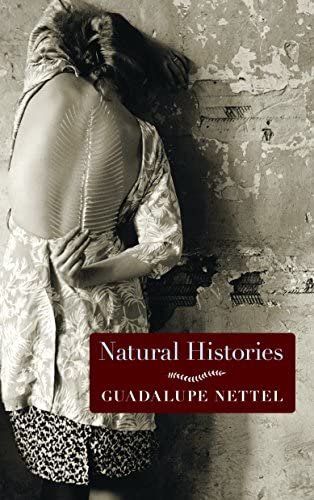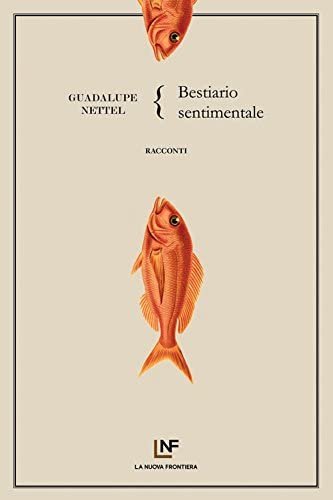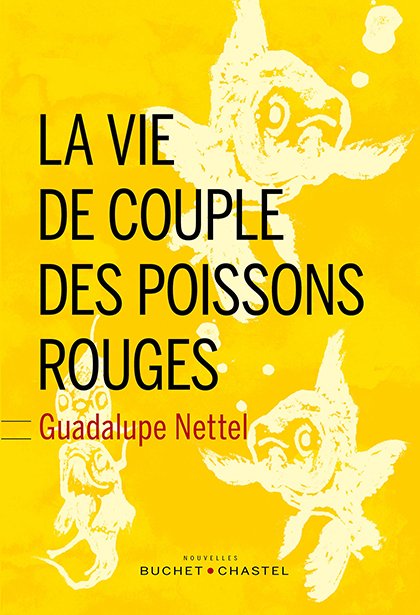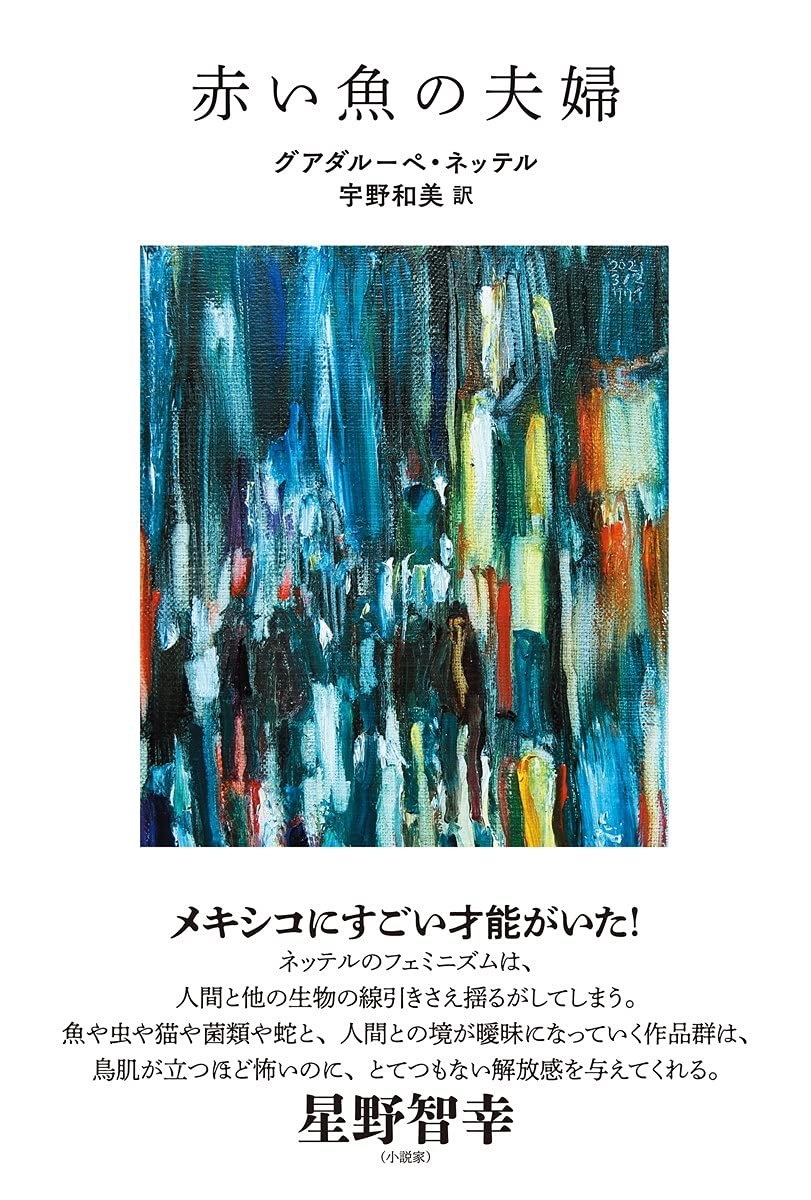El matrimonio de los peces rojos [Natural Histories]
Guadalupe Nettel
STORIES | 2013 | 128 pages
INTERNATIONAL CUENTO RIBERA DEL DUERO PRIZE
These five dark and delicately written stories unfold in fragile worlds, where animal behaviors parallel the ways in which human beings interact with one another and react to their environments. Siamese fighting fish, cockroaches, a cat, a snake, and a strange fungus are mirrors that reflect the unmentionable aspects of human nature we keep hidden, buried. The traits and fates of these animals illuminate deeply natural, human experiences such as the cruelty born out of cohabitation, the desire to reproduce or the struggle against it, and the inexplicable connection that can, eerily, bind two beings together. In her precise writing, subtle and spellbinding, Nettel renders the ordinary unsettling, and the grotesque exquisite.
In each tale, Nettel creates a space wherein her characters feel excruciatingly human with tightly wound narrative tension, exploring how the wounds we incur in life manifest themselves within us, clandestinely, irrevocably, both unseen and overtly.
RIGHTS: spanish PÁGINAS DE ESPUMA | english (usa) SEVEN STORIES PRESS | italian LA NUOVA FRONTIERA | slovenian LUD | japanese IMAN | serbian AGORA | TV/film PELÍCULAS BOMBA S.A. | turkish OTONOM YAYINCILIK | bulgarian COLIBRI | icelandic THE VIGDIS FINNBOGADOTTIR INSTITUTE OF FOREIGN LANGUAGES | simplified chinese FOLIO BOOKS | arabic JADAL PUBLISHING | spanish audio SCRIBD
“As Natural Histories subtly reveals, we may not be so removed from our basic instincts—those that serve to protect us—as we might think. Nettel’s work reminds us that when we are threatened, it is in our biological makeup to fight for our own survival, be it emotional or physical. In the stories collected in Natural Histories we see ourselves, and we see that in love we are parasitic, when trapped we seek to escape, in cohabitation we become cruel, when attacked we fight tooth and claw to defend ourselves, laying aside moral judgment. In misery we seek like company; in loneliness a sense of belonging; in hostility refuge; and when injured we lick our wounds. And in our ugliness, our repulsiveness, our baseness, there is beauty, for these are the aspects of our nature that have ensured our survival.”
“It’s been a really great year for short story collections (...) One that stood out for me in particular among these very good books is Natural Histories by Guadalupe Nettel, translated by J. T. Lichtenstein. Nettel is a wonderful Mexican writer, and each of the stories in this slim collection, published by Seven Stories, takes a wry philosophical look at the relationship between people and the creatures they live with – whether a pair of pet fish or an infestation of cockroaches.”
“Nettel’s prose is precise. Perhaps because of Pliny’s influence—his own “Naturalis Historia” is structured as an encyclopedia—her protagonists seem to be recounting the details of a science experiment. The clinical—sometimes stilted, but always tense—tone of the text suppresses the characters even further, making the stories more heartbreaking, and difficult, to read. This is a credit to Nettel as much as it is to J. T. Lichtenstein, her translator, who has captured the dark and forbidding quality of Nettel’s work without losing the characters’ sympathetic qualities. They yearn for understanding, pulling on a tender chord in readers, yet we are kept at arm’s length. It feels, in fact, like we are on the other side of a terrarium observing the lives of these creatures Nettel puts forth for our assessment.”
“Guadalupe Nettel’s storytelling power is majestic. With an unflinching eye, time and time again, she drives readers on an exploratory safari into the heart of human nature. Funny, touching, terrifying, horrific and/or sad-you never know what you’ll find when you tentatively set out in search of potential dangers, but one thing is abundantly clear: safe in her skilled hands, each journey holds the promise of being a life changing event.”
“The career of this young storyteller is worth keeping an eye on. A master of style, with a marvelous poetic naturalism, her ideas and manners distinguish her from what we are accustomed to in Mexican literature.”
“It has been a long time since I’ve found in the literature of my generation a world as personal and untransferable as that of Guadalupe Nettel.”
“Guadalupe Nettel reveals the subliminal beauty within beings of odd behavior and painstakingly examines the intimacies of her soul.”
“Seasoned readers will delight in this literary voice, new to the landscape of Latin American literature, a voice sophisticated as it is original.”
“Perhaps Guadalupe Nettel is onto something: Publish a slim collection of five flawless stories, rather than a larger, more uneven batch. An award-winning Mexican writer, Ms. Nettel creates marvelous parallels between the sorrows and follies of her human characters and the creatures they live with — whether as pets or pests. In the first story, a Paris lawyer becomes fixated on her Siamese fighting fish, a male-female pair, determined to preserve their harmonious existence as her marriage continues ‘its gradual course toward putrefaction.’ In ‘War in the Trash Cans,’ following a bizarre plan of attack in response to a cockroach infestation, a young girl spots one more in the corner of her room. Yet she finds an odd sense of companionship with this ‘orphaned cockroach, probably frightened, who didn’t know which way to turn.’ Throughout, Ms. Nettel offers her keen attention and sympathy to any living thing struggling to get by.”
“Guadalupe Nettel is one of the most interesting voices of the new Mexican fiction.”
“The gaze [Nettel] turns on madnesses both temperate and destructive, on manias, on deviances, is so sharp that it has us seeing straight into our own obsessions.”
BY GUADALUPE NETTEL:
Los divagantes
STORIES, 2023
La hija única
NOVEL, 2020
Después del invierno
NOVEL, 2014
El matrimonio de los peces rojos
STORIES, 2013
El cuerpo en que nací
NOVEL, 2011
Pétalos y otras historias incómodas
STORIES, 2008
El huésped
NOVEL, 2006










